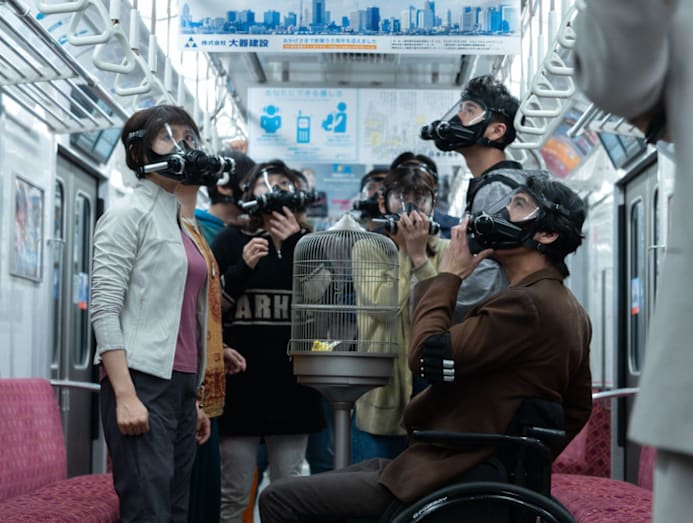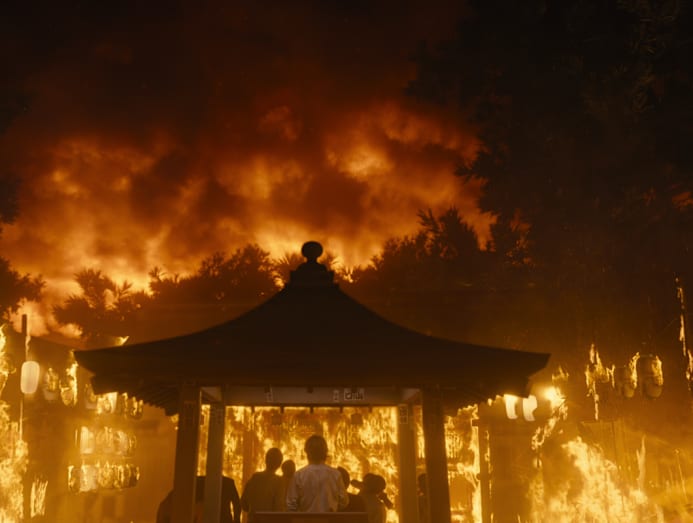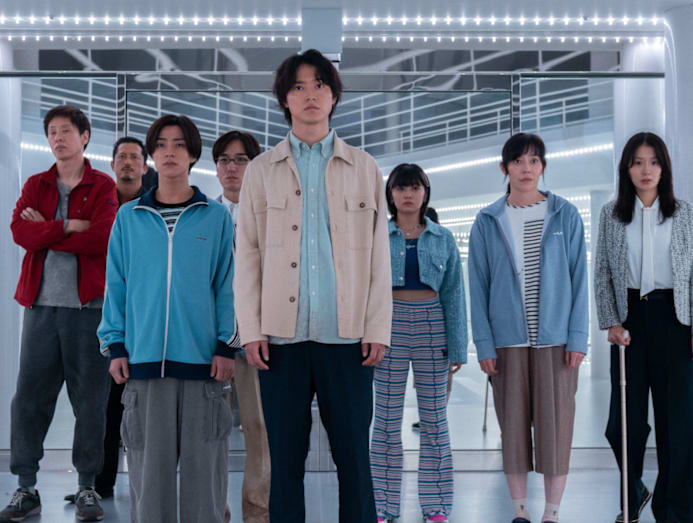Behind the Scenes: Alice In Borderland Cast Discuss Season 3 Surprises

Most of us, thankfully, will never face a choice between our survival and rescuing another from a dire fate.
Yet, it seems that such intense moral dilemmas helped propel the Japanese dystopian thriller, *Alice In Borderland*, into a phenomenon on Netflix.
Before diving into Season 3, which released on September 25, I revisited the first two seasons and attended a preview of the new episodes. It reminded me why this gripping, often violent series captivated me from the start.
For newcomers, the plot centers around Arisu (played by Kento Yamazaki), a disillusioned gamer who finds himself in a perilous alternate Tokyo. To survive, he must engage in merciless games that challenge his intellect, physical abilities, and social skills.
Spoiler alert: Survival is not guaranteed for all participants.
For those new to *Alice In Borderland*, the series opens with a stark warning—that every decision may be your last. This serves as a metaphor for society’s increasing tendency towards nihilism, the idea that life holds no inherent meaning or value.
After all, what’s the point of fighting to survive when death is inevitable?
At first glance, Season 3 seems to delve deeper into this theme.
A MENTAL LANDSCAPE
This season, *Borderland* shifts from a physical battleground to a psychological environment, placing emphasis on the aftermath of surviving trauma.
For Usagi (Tao Tsuchiya)—now married to Arisu—the journey to healing is neither quick nor straightforward. Troubled by visions of her deceased father and an overwhelming desire to overcome her emotional scars, she finds herself drawn back into *Borderland*, aided by a man who studies the afterlife.
Meanwhile, Arisu is pulled back into *Borderland* driven by his urgent need to locate his wife, despite the couple not reuniting until halfway through the season.

Director Shinsuke Sato explained that the decision to keep Arisu and Usagi apart was a creative choice, aiming to deviate from the original manga’s storyline.
To stay true to its core, the team drew inspiration from Lewis Carroll’s *Alice In Wonderland*.
In this 1865 classic, Alice chases a white rabbit into a fantastical realm, much like Arisu’s journey in *Borderland*, where shared realities are distorted.
Sato referred to Carroll’s work as their guiding “bible.” He noted, “We had to contemplate why the original author, Haro Aso, echoed *Alice In Wonderland* in his story. This led us back to the idea of retrieving the lost rabbit, who is Usagi.”
While Arisu and Usagi remain largely separate throughout Season 3, the emotional depth established in previous seasons keeps their relationship palpable onscreen.
“My character’s feelings for Arisu are very solid after Seasons 1 and 2. They never wavered, even when we were shooting separately, and I think that’s something you can see in our performances,” added Tsuchiya, speaking through an interpreter.

MAKING DELIBERATE PRODUCTION CHOICES
Like Alice’s descent into the rabbit hole, characters returning to *Borderland* this season are motivated not by despair but by a sense of purpose, according to producers Akira Morii and Tomoki Takase.
Returning may imply they are not merely fighting for survival, but that each character must navigate their existence with intention to outsmart the relentless games.
For instance, the description of Episode 5’s maze game indicates that each room reveals different potential futures, with only those “bold enough to face their own pain” able to move forward. As expected, not everyone succeeds.
“Arisu has evolved through the seasons and strives to save as many people as possible. The narrative delves into inner human conflicts, particularly the psychological battles,” expressed Kento Yamazaki, who plays Arisu, through an interpreter.
“The series reveals the darker aspects of humanity that we may not often encounter in reality, and that’s part of what makes it compelling.”

In a similar vein, Director Sato emphasized his intention to keep *Borderland* firmly rooted in contemporary Tokyo. The city’s familiar architecture enhances the impact of the altered reality portrayed in the show.
Season 3 begins in Shibuya, a bustling area in the metropolis, and ends with a powerful visual of its “total destruction.” This contrast isn’t merely philosophical but central to the themes of the series.
These themes explore the concepts of existence versus mortality, luck versus effort, and meaningless versus purposeful existence—issues we face in our everyday lives.
“Arisu represents all of us and our mundane existence,” Sato noted. A “regular person” whose life spirals into chaos when he enters *Borderland*, Arisu’s tale is uniquely tied to a Tokyo turned on its head.
In this topsy-turvy setting, every decision compels him—and us—to ask what choice really signifies.

I initially expected the psychological undertones in *Alice In Borderland* to be a mere gimmick. However, they enrich the series’ fundamental message: Life is filled with choices that aren’t simply black or white, and our identities are shaped in those uncertain moments.
While some are driven by choice, others may find themselves paralyzed. The point isn’t to fixate on finding one “correct” answer, as *Alice In Borderland* illustrates.
Ultimately, it’s about understanding that every choice carries weight, and agency is always present. Even in our minds, perhaps especially there, we are each one decision away from an entirely different reality.
CNA Lifestyle was present in Tokyo at Netflix’s invitation.
*Alice In Borderland* Season 3 has arrived on Netflix as of September 25.
What are your thoughts on the moral dilemmas presented in Alice In Borderland?





